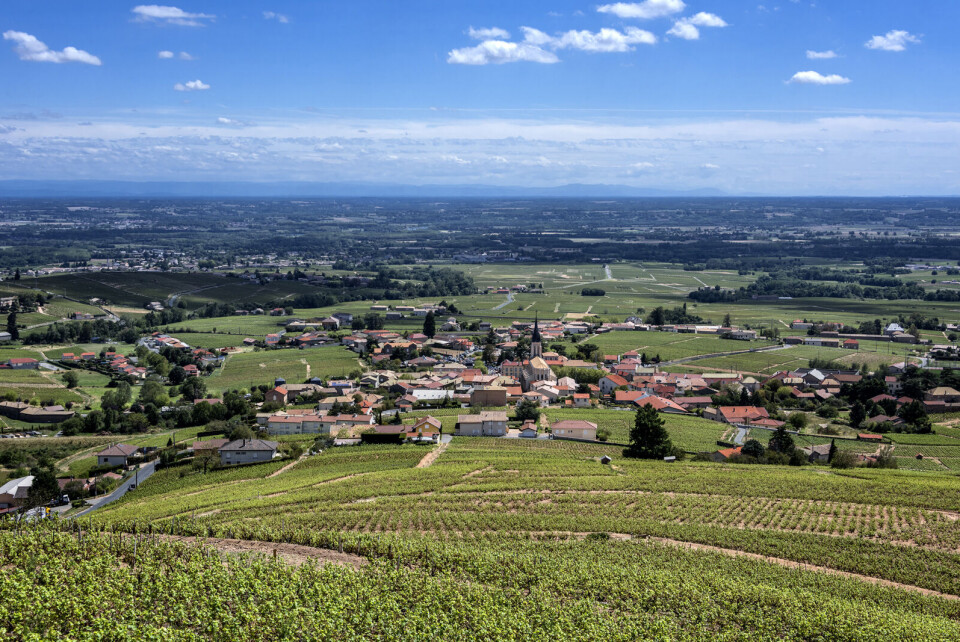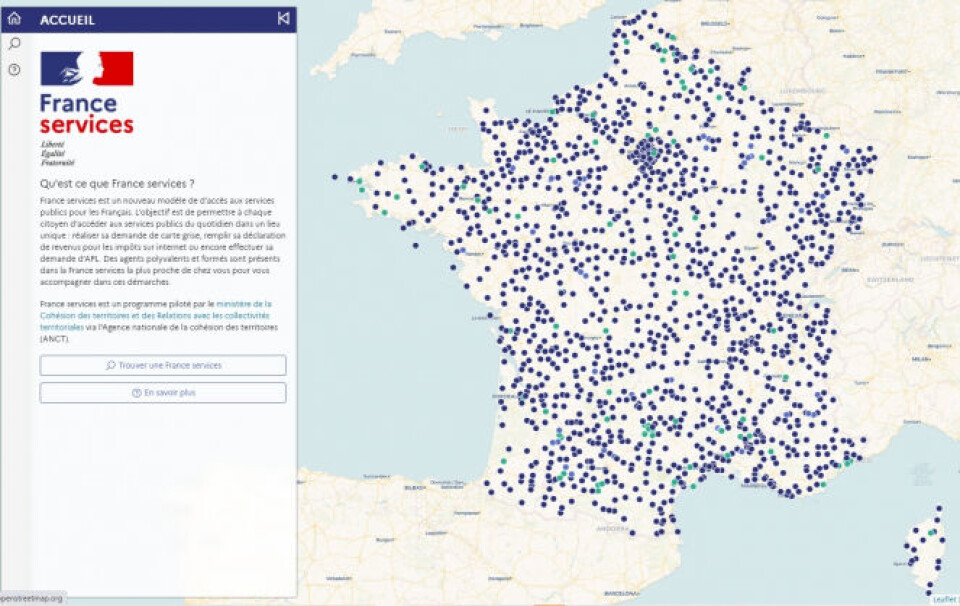-
Which fruits, vegetables and fish are in season in France this April?
Strawberry season begins, compensating for end of winter vegetables
-
Why are drivers in France increasingly getting speeding fines without being ‘flashed’?
Here is why you may have received an unexpected fine in the post
-
Marine Le Pen appeal decision should be given in summer 2026, says court
It comes as the RN leader continues to maintain her ‘innocence’ and right-wing politicians have called her conviction ‘an attack on democracy’
Prime minister to reveal 171 ideas to improve life in rural France
The €8.4billion plans include improving access to public services, supporting village cafes and shops, and reducing delinquency

Prime Minister Jean Castex is to announce a €8.4billion plan to improve life in rural France today (September 24), after the idea was first announced by predecessor Edouard Philippe two years ago.
The announcement is expected to come during Mr Castex’s trip to Yonne, Bourgogne-Franche-Comté. The plan was initially set to be worth €5billion, but this has now been increased.
Many of the 171 measures that make up the plan were inspired by the Grand Débats discussions, which took place between citizens and President Macron across France following the gilets jaunes protests.
The multi-million investment will take place over two years.
The measures include:
Multi-service cafés in communes with fewer than 3,500 inhabitants
The 1,000 cafés project was first created in 2019, with the idea of revitalising small communities by opening local shops in areas where there are none. These small shops would effectively be community cafes, which also sell goods.
Some could even receive parcels or offer other useful services.
The project will now be expanded to offer support to existing cafes that are struggling financially in communes with fewer than 3,500 inhabitants.
The prime minister’s office said it planned to support around 100 independent café owners in 2021.
“Rather than only fighting to open new cafes, let’s try to prevent closures of existing ones,” it said.
Read more: Rural cafes in France given a helping hand to reopen
Reducing ‘delinquency’
A total of €10million will be allocated for preventing “delinquency” and “creating communal centres for remote surveillance” at a departmental level that would improve safety in rural areas.
The prime minister’s office said: “The objective is to pay more attention to rural areas that often have equipment for remote surveillance [such as security cameras] but not the means to monitor the information they collect.”
Putting more resources into monitoring existing systems should “reduce delinquency through dissuasion, make police enquiries easier, and coordinate the state’s response to preventing risks”, it said.
Investment in biodiversity
More than 3,000 communes will benefit from an increased budget for supporting biodiversity, “that will be more than €20million”.
All communes that contain areas of regional natural parks will be included.
Equality initiatives
In order to improve daily life for people living in the countryside, specific initiatives will target “equality between the sexes, and the fight against anti-LGBT discrimination and hate”.
The prime minister’s office said “specific measures and support for all initiatives and associations in rural areas that are working on these issues” will be put in place.
New mobile France Services centres
The prime minister will announce the deployment of 30 new mobile ‘help’ buses as part of the France Services network.
France Services aims to improve access to administrative services throughout France by providing face-to-face advice and support for those using multiple government services.
The buses drive to rural areas to avoid the residents having to travel themselves.
What can advisors help with?
Advisors can help people deal with public services administration for health, family, retirement, housing, taxes, unemployment and legal services provided by the government
These include administrative procedures for providers such as the Pôle Emploi, CAF, Assurance maladie, assurance retraite, caisse nationale des allocations familiales, and mutualité sociale agricole.
Advisors can provide advice and support on individual issues, including understanding how different services work and resolving issues with providers.
Advisors are also intended to reduce the ‘digital divide’, through which an estimated 13 million people in France are alienated from services online, because they do not have sufficient technological access or knowledge to use them properly.
What about second-home owners or people who don’t speak French?
Second-home owners and new residents are able to use the France Services facilities too, if they need, even if they have adequate access to digital services.
This may apply to people who need to fill in certain forms or use certain French government websites, but need help with the language, or want to check they are filling in forms correctly.
The services cannot help provide official translations or guarantee a fluent English speaker will be present, but they are able to offer advice and help where possible.
In contrast, if you need official translations of documents, or need an official translator for a task, you are advised to contact your local mairie.
Existing advisors can provide digital support using official websites to make reservations, declare taxes, or complete other online tasks.
New measures mean that 4,000 such digital advisors should be deployed throughout France by 2022.
The France Service buses were introduced earlier in 2021 to bring the network to more remote rural areas. Currently 80 are in use.
The government wants to increase the France Services network to 2,000 service points by the end of the year so that all people in France can find one “less than 30 minutes from where they live”.
Current locations of France Services points around the country can be found via an online map, with blue dots representing fixed location service providers, and green dots representing mobile buses.
Click on the screenshot below to access an interactive version of the map.

Related stories
Hunting: Thousands march in France to defend ‘rural way of life’
Can I change my second home to my main one in France for tax purposes?
Property prices in rural France outperforming cities for first time
























